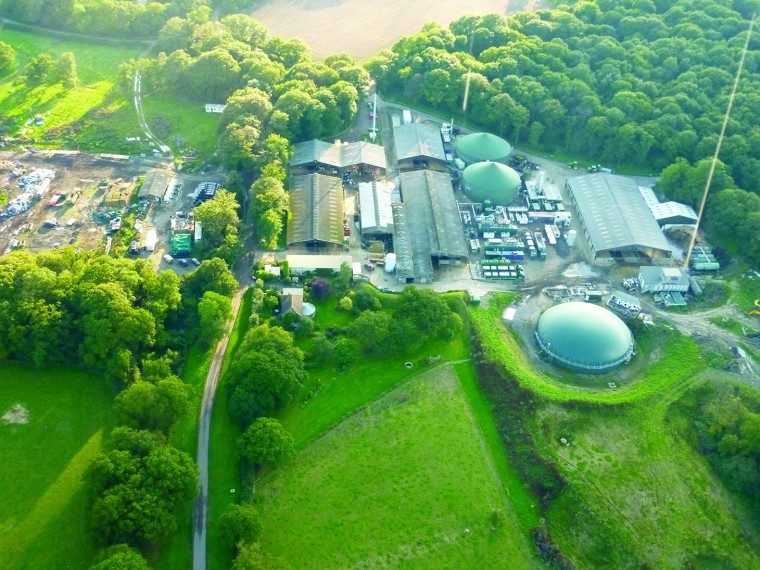The new dairy will use all the latest techniques of feeding, animal welfare and milking to make a fresh start at Crouchland Farm in Plaistow, West Sussex. Crouchland Farms Ltd hopes that housing the entire dairy operation on the 450 acre farm and using slurry from the cows to power the biogas plant will end the protests. The Protect Our Rural Environment (PORE) group has been concerned about the increase in HGV traffic to and from the farm as well as pollution from the lagoons storing the plant’s digestive.
This year, an inspector at a public inquiry found the production and export of biomethane from the farm was lawful. But she also decided that Crouchland Biogas Ltd – which operates the plant – can only use waste from the dairy herd on the home farm and crops grown there.
Clarissa Bushell from PORE said planners at Chichester district council should not be considering the new dairy while the planning application for the expanded plant is incomplete. “The plant’s infrastructure has enforcement notices on it so it might have to be taken down.” Meanwhile, Crouchland’s appeal against the refusal of a retrospective planning application for the expanded plant is not due to be held until next year.
If Crouchland Farms wins approval for the new dairy, it will demolish an existing barn and build a dairy unit with silage clamp, manure storage, feed kitchen and associated infrastructure. The unit will allow the farm to house up to 550 milking cows and use existing outdated dairy units to the north of the site to house dairy followers and young stock, which are currently kept off site at the expense of the farm. This will provide the farm with closed herd status reducing both transport and rearing costs as well as risk of exposure to disease.
The proposed unit will include an automated system, allowing the herd free access to feed, water, resting areas and the milking machines. This allows the cows to decide when to eat, rest or be milked, reducing stress and allowing the staff to manage the the herd’s welfare.
Waste from the dairy unit will be linked to the existing infrastructure on site with both manure and cow slurry being collected and used in the biogas plant, which makes and exports biomethane to power about 4,000 homes. Slurry and wash water from the unit will be stored in an underground tank and pumped to the biogas plant. The external yard’s dirty water will be collected separately and spread on the land as part of the farm’s operations.
Rainwater will be harvested from the clean water areas and stored in an underground tank for reuse within the system, with any excess being discharged via sustainable drainage to the nearest watercourse. Solar panels are also planned for the roofs to provide renewable energy for the unit.
Paul Curtis, head of group operations at Crouchland Farm, said: “This is an exciting time for Crouchland Farm. Replacing the existing barn with a state of the art dairy unit will help us improve the welfare of our cows and safeguard the future of our dairy farm for generations.




